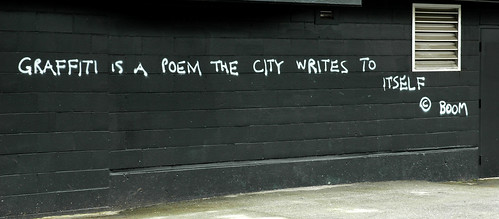 Two quotes for you today from Audre Lorde, in honor of both National Poetry Month & National Sexual Assault Awareness & Prevention Month:
Two quotes for you today from Audre Lorde, in honor of both National Poetry Month & National Sexual Assault Awareness & Prevention Month:
“Poetry is not only dream and vision; it is the skeleton architecture of our lives. It lays the foundations for a future of change, a bridge across our fears of what has never been before.”
“… poetry is not a luxury. It is a vital necessity of our existence. It forms the quality of the light within which we predicate our hopes and dreams toward survival and change, first made into language, then into idea, then into more tangible action. Poetry is the way we help give name to the nameless so it can be thought. The farthest horizons of our hopes and fears are cobbled by our poems, carved from the rock experiences of our daily lives.”
— Audre Lorde
Have you read Lorde’s essay/talk, “
Poetry is not a Luxury“? That’s a great possibility for today. And after, give yourself maybe 10 minutes to write about what you’ve read, what you imagined as you read her work, or those quotes from her work above: does creative writing/creative work feel like something we have to do on the side of our lives, something above and beyond the necessities of life? It’s at the very tip top of
Maslow’s Hierarchy, after all, far away from food & shelter — a splurge, a luxury.
What if we consider the fact that creation isn’t a luxury — it’s a
human condition. And poetry/creative writing has been a transformational human act since we found the capacity for speech — even before written language, the bards/griots, who held (hold) and shared (share) a community’s/society’s collected knowledge and/or news in the form of sung poetry, were (are) held up and revered. In the West, and particularly in the USA, we look down on poets as weak, childish, undriven to succeed materially. In many other parts of the world, even today, poets aren’t seen this way.
Audre Lorde says it: “Poetry is the way we help give name to the nameless so it can be thought.” Without this gift, we stay stagnant in particular ways of thinking, or unthinking. It has been my experience that the most transformative reading in my own healing/growing process has been poetry and other creative work. This experience of finding language for what we had thought was unsayable is deeply transformative: it gives lie to the silencers, it gives lie to what we thought we had to swallow in order to survive. In reading their work, and then through my/our own writing process, the possibilities available for my/our very being are blown open, because the words I/we have access to have changed, expanded, multiplied.
These have been my teachers, because they have opened to me new ways to think, new languages for what up to my reading of their work had been unlanguaged in me: Alice Walker, Pat Califia, Sharon Bridgeforth, Sapphire, Gloria Anzaldua, Cherrie Moraga, Audre Lorde, Dorothy Allison, Chrystos, Linda Smukler/Samuel Ace, Patricia Smith, Essex Hemphill, Pat Parker, Pamela Sneed, Ai, Kim Addonizio, Nikki Giovanni (this is not at all exhaustive; there were many more) — and yes, e.e. cummings, and Shel Silverstein, who was first. These have crafted me, have shown me what poetry, what truth-telling, what revolution can look like, a revolution that is, for me, queer women led (queer woman-of-color led, honestly) a revolution that names names and says what we were told was no one would ever be able to say.
Who have been the poets that blew you open? What poem? When did you read it? Do you remember where you were sitting, or what town you lived in? Spending time with favorite stories or poems can be such a delight — give yourself permission to take 7 or 10 minutes for this write today.
Thank you for the words you offer, that give so much to you yourself in your own transformation, and, too, might become a becon, a shape-shifting possibility for others as well.
 Two quotes for you today from Audre Lorde, in honor of both National Poetry Month & National Sexual Assault Awareness & Prevention Month:
Two quotes for you today from Audre Lorde, in honor of both National Poetry Month & National Sexual Assault Awareness & Prevention Month: